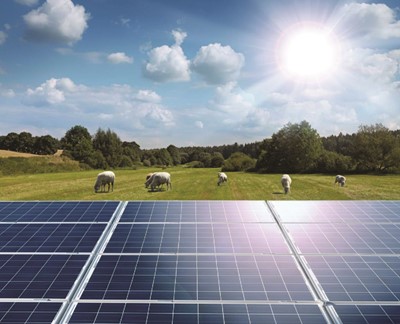Sustainable futures: Centrica

UK utilities company Centrica has led the way in sustainability and CSR. Its ownership of brands like Hive has helped it ingrain sustainable principles throughout the business. Hassan Butt reports
When, in 1997, Centrica plc announced its demerger from British Gas, the UK public’s attention had been largely diverted elsewhere. In David-and-Goliath fashion, environmental campaigners David Morris and Helen Steel had published, as part of a collective known as London Greenpeace, a leaflet entitled ‘What’s wrong with McDonald’s: everything they don’t want you to know.’ Its critique of the fast food chain’s corporate responsibility and sustainability practices led to the McDonald’s Corporation filing a lawsuit for libel, igniting Britain’s longest ever court case that would come to be known as ‘the McLibel case.’
Although largely making headlines for its peculiarity, the case marked a shift in the paradigm of corporate sustainability. Despite McDonald’s having won the case, no longer were brands able to skirt along the peripheries of responsibility, blithely ticking boxes, many even circumventing true sustainable action.
Centrica’s newfound freedom, however, gave the utility company plenty of opportunity to diversify. The next decade, marked by a healthy economic environment in the UK, was bountiful. In 1999, it acquired AA for £1.1bn, then regional telecoms operator OneTel, and soon after the Dyno-franchise. Yet domestic acquisition wasn’t the only area for extension for the multinational, its continental European ventures were also prosperous, with expansion across Belgium, Netherlands and Norway.
Simultaneously, global efforts to advance sustainability practices were beginning to take root. In 1997, following the United Nations Framework Convention on Climate Change (UNFCCC) five years earlier, the Kyoto Protocol was signed, generating 84 signatories committing to reduce greenhouse gas emissions. Sowing the seeds for the 2015 Paris Agreement, the treaty set cross-border binding targets, and in the UK, government-mandated emissions trading schemes – notably the UK Emissions Trading Scheme – recruited over 30 participants from 54 sectors of the UK economy. Centrica was one of them.
Yet the utility company’s sustainability impact has set the pace for forward-thinking brands in its category, both directly and indirectly. In 2010, the company announced new strategic priorities, pledging to ‘provide energy for a low carbon world,’ and acknowledging that many of Centrica’s priority risks are related to climate change. Over the next ten years the company will lead the market in promoting clean energy use.
In 2013, for example, Centrica launched the first energy-focused social investment fund in the UK, called Ignite. Its goal – to invest time, money and support into energy-related social enterprises – led to the creation of 2014 Big Energy Idea, which provided 10 energy social entrepreneurs with a support package of funding to help grow the social impact they create. In 2016, Ignite invested £2m in a project led by social enterprise, Generation Community, developing solar schemes that help low income communities adequately heat homes.
Centrica’s 2017 ranking in Corporate Knights’ Global 100 Index placed the company 13th for its ongoing efforts in sustainability, solidifying it as the best ranked UK utilities company for the second year in a row. Julia Rebholz, Centrica’s director of sustainability and Ignite, says, “As a leading energy and services company, we have an important responsibility to embed sustainable business practices that not only satisfy the changing needs of our customers, but benefit our people and protect the environment. That’s why we help our customers cut their carbon with market-leading connected
home products while securing energy in a safe and responsible way.”
Centrica’s sustainability efforts have not only secured its footing as a key player in sustainability, particularly within its sector, but the company has also fused such efforts with an innovative approach to social energy. Forming its Connected Homes sector in 2012, Centrica developed Hive Active Heating the following year. Developed through a smart, internet-connected thermostat, customers can control heating and hot water through Hive’s website and app.
Pioneering the first large-scale implementation of smart homes, Hive’s customers now exceed 360,000, with the sub-brand now employing more than 200 employees. Partnering with Amazon Echo in 2016, Hive can now be accessed through Alexa voice control, allowing for an interconnectivity that far exceeds any of its smart home rivals.

Yet the smart meter revolution not only changes the landscape of home energy use, its ability to track, control and measure energy usage has allowed Centrica to place its sustainability efforts in the hands of its customers. With the average UK household heating bill between £1,200-£1,400 per year, Hive’s connected homes initiative not only drops energy usage through remote access, but also saves customers 20-30% on costs.
Centrica has also turned the scope inwards, cutting its internal carbon footprint down 8% this year by reducing emissions on its internal fleet, reducing electricity consumption in its offices and curbing collective company travel by 6%. The company also created a clean working space, decommissioning old PCs and equipment and installing ‘Panoramic Power’ energy sensors in three of its North America offices, allowing the company to track its energy consumption, keeping in line with its 20% reduction target by 2025.
Weaving sustainability into the fabric of the company, Centrica has undertaken significant efforts to achieve its environmental goals, and it’s also established a crucial understanding of the various ways it can continue to safeguard the environment. Yet Centrica’s in-depth annual reports and clear sustainability objectives not only help the company govern its activities responsibly, it also creates a positive, transparent and assured approach to sustainability, giving energy a good name along the way.
For more from Transform magazine, follow us on Twitter @Transformsays












